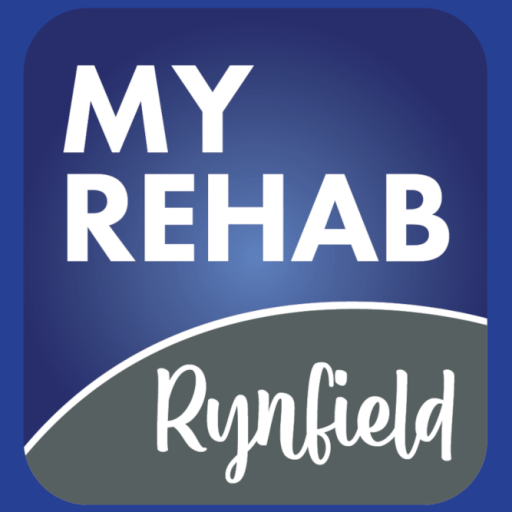
Affordable Drug Rehab
Transform your life with affordable drug rehab options that ensure financial constraints don’t hinder your path to recovery—discover how inside. Navigating the journey back to sobriety can be financially daunting, yet it’s crucial to remember that affordable paths do exist. You might wonder how to access treatment without breaking the bank. From state-funded programmes to insurance coverage options, there are avenues designed to lighten the financial burden. Understanding the landscape of sliding scale fees, non-profit organisations, and charitable resources could be your first step towards recovery without the stress of overwhelming costs. Imagine finding a solution that fits your budget and supports your journey to wellness. Let’s explore how you can make this a reality.
Key Takeaways
- Outpatient rehab and sliding scale fees offer more affordable treatment options.
- State-funded programmes provide assistance based on financial need, with required documentation.
- Insurance specifics and policy limitations are crucial for managing rehab costs effectively.
- Non-profit and charitable organisations can offer reduced-cost or free addiction treatment services.
Understanding the Costs of Rehab
Navigating the costs of rehab can be daunting, but understanding the financial aspects is crucial for making informed decisions about your recovery journey. You need to be aware of not just the upfront costs but also the hidden expenses that can accumulate. These can include additional fees for specialised therapy sessions, medication, and even the cost of travelling to and from the facility if you’re opting for outpatient treatment.
Speaking of outpatient alternatives, they often present a more affordable option compared to inpatient rehab. While they may not offer the same level of intensive care, these programmes can be effective, especially if you’re committed to your recovery and have a strong support system at home. Outpatient services allow you to maintain some of your daily responsibilities, which can be a financial relief since you might be able to keep working.
It’s also worth looking into programmes that offer sliding scale fees based on your income, as this can significantly reduce your out-of-pocket costs. Don’t shy away from asking about payment plans or financial assistance programmes that could alleviate the burden. Remember, investing in your recovery is crucial, but it shouldn’t break the bank.
State-Funded Rehab Programs
While exploring cost-effective rehab options, it’s important to consider state-funded rehab programmes that offer assistance based on need. These programmes are a lifeline for individuals seeking help with substance abuse without the financial means to afford private treatment. Understanding the eligibility criteria is your first step. Generally, you must prove financial hardship, lack of insurance, or insufficient insurance coverage. Additionally, residency within the state offering the programme is typically required.
The application process for these programmes can seem daunting but don’t let it deter you. You’ll likely need to gather documentation proving your financial status, residency, and the extent of your substance use disorder. This might include tax returns, pay stubs, identification, and a medical assessment from a healthcare provider.
Once you’ve applied, there’s often a waiting period due to high demand. However, the wait is worth it for the access to detox, counselling, medication-assisted treatment, and support services these programmes provide. Remember, the goal is to help you recover, regardless of your financial situation. By meeting the eligibility criteria and navigating the application process, you’re taking a significant step towards reclaiming your life from addiction.
Sliding Scale Fee Structures
Another affordable drug rehab option you might consider for rehab is a facility that offers sliding scale fee structures, tailoring the cost to your financial situation. This approach makes it possible for individuals at different income levels to access the treatment they need without the burden of overwhelming costs. Here’s how it works and why it might be a good fit for you:
Payment negotiation: Facilities with sliding scale fees are open to discussing your financial situation and adjusting treatment costs accordingly. This means you’re not stuck with a one-size-fits-all price tag.
Financial assistance: Many of these facilities have access to various forms of financial aid, ensuring that those in need can find support beyond the adjusted pricing.
Personalised payment plans: Instead of paying the full amount upfront, you might have the option to arrange a payment plan that fits your budget, easing the financial pressure.
Transparency: Facilities offering sliding scales usually have clear criteria for determining your fees, ensuring the process is transparent and fair.
Insurance Coverage for Rehab
Exploring insurance coverage for rehab can significantly reduce your out-of-pocket expenses, making addiction treatment more accessible. When you’re diving into your insurance plan, it’s crucial to understand the specifics of what’s covered and what’s not. Most insurance plans provide some level of coverage for addiction treatment, but you’ll find that policy limitations and coverage exceptions play a significant role in determining the extent of this support.
Firstly, check the details of your policy to identify which treatments are covered. You might find that while inpatient rehab is covered, there could be a cap on the number of days or a requirement for pre-authorization. Outpatient programmes, on the other hand, might have different limitations, such as a set number of sessions.
Furthermore, coverage exceptions can also impact your access to certain facilities or therapies. Some insurance plans might exclude certain types of treatment or require that you choose providers within a specific network. It’s essential to inquire about these exceptions to avoid unexpected bills.
Lastly, don’t hesitate to reach out to your insurance provider for clarification on your coverage. Understanding the fine print of your policy can help you navigate the complexities of insurance coverage for rehab, ensuring you make the most of the benefits available to you.
Your involvement, whether through volunteer opportunities or understanding the impacts of your donations, plays a critical role in supporting accessible addiction treatment.
